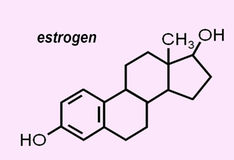- Home
- Editorial
- News
- Practice Guidelines
- Anesthesiology Guidelines
- Cancer Guidelines
- Cardiac Sciences Guidelines
- Critical Care Guidelines
- Dentistry Guidelines
- Dermatology Guidelines
- Diabetes and Endo Guidelines
- Diagnostics Guidelines
- ENT Guidelines
- Featured Practice Guidelines
- Gastroenterology Guidelines
- Geriatrics Guidelines
- Medicine Guidelines
- Nephrology Guidelines
- Neurosciences Guidelines
- Obs and Gynae Guidelines
- Ophthalmology Guidelines
- Orthopaedics Guidelines
- Paediatrics Guidelines
- Psychiatry Guidelines
- Pulmonology Guidelines
- Radiology Guidelines
- Surgery Guidelines
- Urology Guidelines
New insight of the protective role of estrogens in Diabetes

According to the epidemiological data, there is an impending explosion of type 2 diabetes cases for women after menopause. The protective role of oestrogens is postulated by the fact that women undergoing hormone replacement therapy have up to 35% less risks of developing type 2 diabetes than those without treatment. By elucidating how oestrogen affects two of the hormones involved in glucose homeostasis, glucagon and GLP1, researchers at the University of Geneva (UNIGE), Switzerland, and at the Geneva University Hospitals (HUG) prove the value of oestrogen supplementation from the onset of menopause. This research, published in JCI Insight, also shows that only one of the three oestrogen receptors seems to be involved in this mechanism. This could ultimately provide much more targeted therapies with a specific molecule that would prevent patients the sometimes embarrassing side effects when treated with a too powerful hormonal therapy.
Diabetes experts know that pre-menopausal women are less likely than men to develop type 2 diabetes. However, after menopause, the trend reverses very clearly, highlighting the protective role of women sexual hormones and especially oestrogens. But what is their specific effect on metabolism? This question was answered by the team led by Jacques Philippe, Diabetes specialist at UNIGE Faculty of Medicine and Head of the HUG Department of Endocrinology, Diabetes, Hypertension and Nutrition.
"A number of scientists are working on the effect of oestrogens on pancreatic insulin-producing cells," says Sandra Handgraaf, a researcher at the Faculty of Medicine and the first author of this work. "But its effect on glucagon-producing cells, another hormone regulating blood sugar, had never been explored before. Indeed, if the pancreas secretes insulin, it also secretes glucagon, a hormone with the opposite effect: insulin captures sugar, while glucagon releases it. Diabetes is therefore due to an imbalance between these two hormones controlling the sugar level in the blood."
Pancreatic cells, but also intestinal ones
Oestrogen administration to post-menopausal female mice led the Geneva scientists to make a first observation: they identified an increased tolerance to glucose, which is correlated to a lower risk of diabetes. However, if the effect on insulin was expected, the effect on glucagon - and especially on GLP1, an intestinal and pancreatic hormone that increases insulin production - was much less so. These results confirmed the sensitivity to oestrogen of pancreatic alpha cells, which then secrete less hyperglycemic glucagon, but more GLP1. Also released by the intestine during the absorption of meal, this hormone stimulates the secretion of insulin, inhibits the secretion of glucagon and induces the feeling of satiety. The lack of GLP1 is therefore an essential piece - and so far little known - of the onset of diabetes. The role played by GLP1 represents a major explanation of the protection of women regarding diabetes onset before menopause.
"This first observation was already interesting", explains Sandra Handgraaf. "But we went a step further: indeed, the gut harbours cells called the L cells that are very similar to pancreatic alpha cells and whose main function is precisely to produce GLP1. We also observed a strong increase in the production of GLP1 in the gut cells, thus proving the crucial role of the intestine in the control of carbohydrate balance and the influence of oestrogens on the entire metabolisms at stake". These results were also confirmed on human cells and tissue samples.
Interesting substitution treatments
Hormonal substitution treatments are often subject to negative publicity, mainly because of the cardiovascular risks associated with them. «It is important to remember that hormonal substitution, when taken at the beginning of menopause and for a few years only, does not cause any particular risk of cardiovascular events,» stresses Jacques Philippe. "However, if hormonal treatment is taken more than 10 years after menopause, the cardiovascular risk is effectively increased. In the context of diabetes, an oestrogenic treatment allows to avoid, in all cases, the explosion of female diabetes cases. These treatments, well administered, can really add value for women's health."
Towards more targeted treatments
In their study, the Geneva researchers were also able to dissect the fine cellular mechanisms involved: Of the three oestrogens receptors, only one is mainly involved in this protective effect. It would, therefore, be possible to develop a molecule that only activates the interesting receptor, with a much more targeted effect. "One could imagine a treatment that, without the side effects of a little too powerful hormonal therapy, would also address men", concludes Sandra Handgraaf.
For more details click on the link: http://dx.doi.org/10.1172/jci.insight.98569

Disclaimer: This site is primarily intended for healthcare professionals. Any content/information on this website does not replace the advice of medical and/or health professionals and should not be construed as medical/diagnostic advice/endorsement or prescription. Use of this site is subject to our terms of use, privacy policy, advertisement policy. © 2020 Minerva Medical Treatment Pvt Ltd